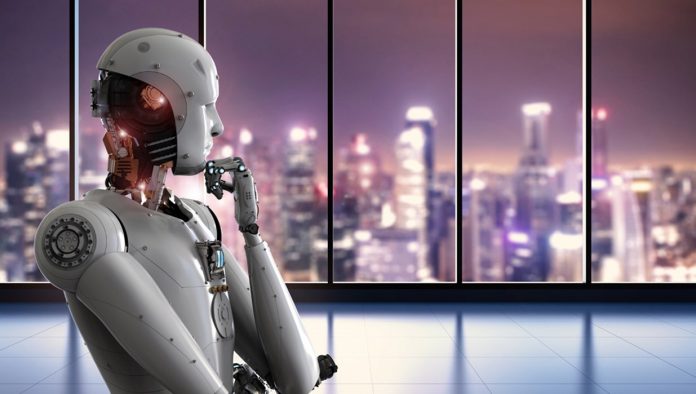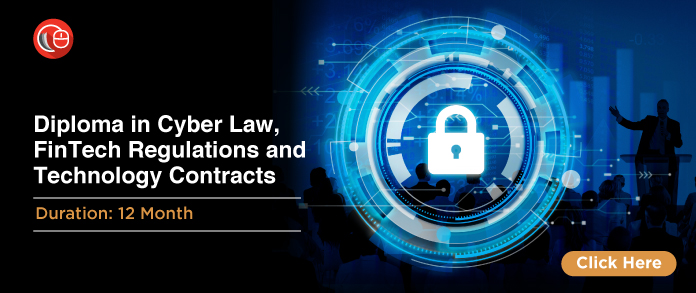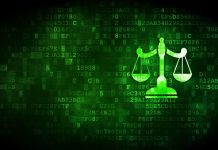This article is written by Chandana Pradeep, from the School of Law, University of Petroleum and Energy Studies, Dehradun. This article analyzes artificial intelligence and has taken a step forward into the legal ecosystem.
Table of Contents
Introduction
The meaning of artificial intelligence is defined by the Cambridge dictionary as “the study of how to produce machines that have some of the qualities that the human mind has, such as the ability to understand language, recognize pictures, solve problems, and learn”.
This technology has been involved in our daily lives to make tasks easier, this has been used in the field of legal professional as well. Where, law uses more of a traditional approach and most of the processes concern manual work, which is time taking, artificial intelligence has been introduced to make it much more simpler and eliminate any delays that may arise.
Due to the introduction of artificial technology, everything has been made online which can be accessed just by a click, many law firms have resorted to artificial intelligence too rather than following the traditional method of doing manual labour required for doing certain tasks in the field of law, which makes them much more efficient.
How is the legal system making use of Artificial Intelligence?
Artificial intelligence is slowly progressing its way into our daily lives, not excluding even the professional arena, and the legal field is of no exception. Some of the ways in which the legal system is making use of artificial intelligence are as follows:
Research
The traditional way of research, that is by using reference books and reading long case judgements just to find a few hand picked cases that are relevant is very time taking, and that is not what is needed in today’s fast-paced work where there are a lot of timelines to stick to, so the intervention of Artificial Intelligence, comes in quite handy. Artificial intelligence sites which help in getting legal research done for lawyers are SCC, Manupatra, LexisNexis among many others.
Due diligence
Due diligence is again a process which is very time taking and is prone to many errors. With the introduction of Artificial intelligence systems to this field, it is becoming much more hassle-free and easier to go through the process of due diligence and make sure that there are no errors while reviewing the document.
Productivity
Artificial intelligence systems can make lawyers much more productive and cost-efficient. There are a lot of artificial intelligence softwares that are developed so as to help with reviewing documents and other related tasks and once these lawyers invest in the same, they become more productive and this investment can prove to be an asset to these lawyers.
Analysing documents
Artificial Intelligence helps lawyers to analyse the documents at a much faster pace and has room for little to no errors while doing so and can help in detecting certain patterns or even helps them to find precedent to cases with a single click.
Intellectual property
Intellectual property and the filings related to the same can be dealt easily with through the help of artificial intelligence, without having the need to do the mechanical task of doing it by getting it signed by the registrar, the use of applications and softwares helps the lawyers much more as it saves time and energy.
Startups that use Artificial Intelligence
- Spotdraft: This startup reviews documents within minutes. This is a very useful resource for the legal industry as the main aim is to save time and this can help in doing so. This startup is based in Gurugram.
- Case Mine: This is another startup which uses artificial intelligence and helps to create links to group together cases of like nature as well as create a summary of all cases. This startup is founded by Anuradaha Yadav.
- Practice League: business units are empowered so that there can be accurate reports as well as fast delivery of resources and also give insights regularly as to how the business is performing with the help of artificial technology.
Artificial Intelligence and the judicial system
Artificial intelligence and the judicial system can go hand in hand, as artificial intelligence is much faster and accurate than human beings in certain aspects that this man-made technology can actually be of use to the judicial system.
As we all know the courts have an ample number of cases pending and more are just being added on a daily basis. There have been thoughts of having these two independent systems to collaborate together to be of benefit to the judicial system.
Recently, the Chief Justice of India, Sharad Aravind Bobde said, We have a possibility of developing Artificial Intelligence for the court system. Only for the purpose of ensuring that the undue delay in justice is prevented.”“I must make it clear at the outset as there are times when even judges have asked this. AI is not going to replace human judges or human discretion”.
There are various features of Artificial intelligence that can be of benefit to the judicial system such as its predictive nature which can help in the process of evaluating delays in a case, or group like cases together, it can also save time of the courts and help to reach a decision in a fast pace manner.
The fact that the judges also believe in artificial intelligence, means how important it is in the future and how it can save numerous problems that the courts are facing till date.
Recent developments
There have been new developments with regard to the interface between law and artificial intelligence, some of the developments are as follows
Artificial Intelligence software by the Supreme Court
There has been a new software that has been developed for the supreme court known as SUVAS (Supreme Court Anuvaad Software), it was developed in the year 2019. Its main objective is to use machine learning technology integrated with the features of artificial intelligence to help translate English judgements and orders into different regional languages as the case may be.
Official Supreme Court application
The Supreme Court developed an application with the help of the National Informatics Centre, which would help the citizens preview the latest judgements, daily cases to be held, etc. Therefore Artificial Intelligence has helped people to view relevant information with just a click of a button and that too in various regional languages.
E-courts
All information and documents that are relating to a case are available free of cost to the people who want to access it.
Risk of using Artificial Intelligence
Everything has both pros and cons and artificial intelligence is not different, if not used properly there are many risks that can take place,Elon Musk, founder of SpaceX in an interview said “Mark my words — A.I. is far more dangerous than nukes”. Some of the risks are as follows:
Performance risks
Sometimes even the best of technologies falter and so can Artificial intelligence, sometimes it might draw conclusions according to its own machine knowledge that cannot be interpreted by human nature and can in some cases lead to risk in performance as it can lead to inaccurate results.
Security concerns
Systems of artificial intelligence are prone to get hacked and this is a serious concern, as there is no proper security in these systems that ensure that the data and information in these systems are protected.
Economical risks
With the introduction of these systems the economy will be solely dependent on these machines and this will cause an economic standstill in a few years.
Risks in ethics
Artificial intelligence can cause biases between information, as the information that is being generated by these machines are based on assumptions.
Privacy management in the legal ecosystem
One of the most majorly talked about issues in any domain is the concept of privacy and security concerns. How much can Artificial intelligence software be depended upon? How can people ensure that their data is safe? All of these are questions that go on in people’s minds when the topic of artificial intelligence is thought of.
There have been various legislations enacted worldwide to ensure that privacy is protected, such as the GDPR (General Data Protection Regulation) laws enacted in the European Union which India is very keen on adopting due to privacy issues.
Can Artificial Intelligence replace humans?
This question haunts almost all, as to what will be the future of Artificial intelligence? Is it capable of replacing humans?
Well fortunately or not fortunately, this will not happen, as the objective of introducing artificial intelligence into the area of law is to help the lawyers and judges to reach a decision quicker than the normal mechanical process. Because of this fear, most law firms are not very keen on adapting to new technologies.
Just like Chief Justice Bobde said as quoted above, the introduction of artificial intelligence is only to help various processes of a lawyer and achieve quicker results and above all to eliminate delays.
No matter how much technologies develop, there are certain things which a machine cannot do, such as give advice for clients or negotiate terms and conditions of a contract among others. The introduction of artificial intelligence has been a boon to lawyers and other professional as well and has made them, more productive and efficient.
Artificial intelligence and COVID-19
During this pandemic of COVID-19, technology has been of help to all throughout regardless of being a student or a professional. The present pandemic has caused all courts to go on the online mode, there have been virtual hearings and all of this would not have been possible without the help of artificial intelligence.
In the case of Swapnil Tripathi v. Supreme Court of India, it focused on the benefit of live streaming cases except for cases where live trial is necessary such as in cases of rape, where it cannot be hed virtually and it was stressed upon that no mater the circumstances, justice has to be served.
Amidst the pandemic, there has been an increased number of use in online applications, e filings, payments of fines, etc, and this would not have been possible without a system of artificial intelligence.
Suggestions
Artificial intelligence is being used by many, and this means that it has a lot of data on these systems and there is no security for these data that have been entered and need protection. For that, there should be stringent laws that should be adopted and legal resources that can be resorted to in case of a breach of privacy as well as there should be a strict framework of laws that determine how much artificial intelligence can intervene in the professional industries.
Conclusion
Artificial intelligence being part of the legal industry has proved to be beneficial as this helps lawyers make quicker decisions as well be productive. It is to be noted that no artificial science can take over human beings as they lack sets that humans possess, one of the main skill that humans have is empathy which lacks in machines, where it only follows mechanical codes etc. owing to this it can never replace humans.
In the growing years, there will be more dependence on artificial technology for all matters to reduce the burden that the lawyers are facing, hence there should be proper regulations and laws made to ensure an efficient method of combining these two streams to avoid any area of conflict in the times to come.
References
- https://hackr.io/blog/benefits-of-artificial-intelligence
- https://www.digitalistmag.com/digital-economy/2018/04/03/ai-is-disrupting-law-06030693/
- https://www.academia.edu/32554847/Artificial_Intelligence_and_legal_ecosystem_the_new_challenge
- https://academic.oup.com/cjres/article/13/1/135/5716343
- https://builtin.com/artificial-intelligence/risks-of-artificial-intelligence
- https://futureoflife.org/background/benefits-risks-of-artificial-intelligence/
- http://www.legalserviceindia.com/legal/article-631-impact-of-artificial-intelligence-on-indian-legal-system.html#:~:text=Legal%20Analytics%2D%20Artificial%20Intelligence%20provides,lawyers%20in%20their%20present%20cases.&text=It%20makes%20for%20accurate%20billing,helps%20both%20lawyers%20and%20clients.
- https://www.barandbench.com/columns/artificial-intelligence-and-legal-profession-an-intelligent-way-ahead
- https://www.ishir.com/blog/4644/artificial-intelligence-changing-legal-industry.htm
- https://www.hindustantimes.com/india-news/we-have-possibility-of-developing-artificial-intelligence-for-court-system-cji-bobde/story-KGbLW1RNNDvoHfHkUJExcI.html#:~:text=Chief%20Justice%20of%20India%2C%20Sharad,will%20never%20replace%20human%20discretion.&text=Only%20for%20the%20purpose%20of,delay%20in%20justice%20is%20prevented.%E2%80%9D
- https://legaldesire.com/scope-of-artificial-intelligence-in-law/
LawSikho has created a telegram group for exchanging legal knowledge, referrals and various opportunities. You can click on this link and join:
 Serato DJ Crack 2025Serato DJ PRO Crack
Serato DJ Crack 2025Serato DJ PRO Crack











 Allow notifications
Allow notifications


